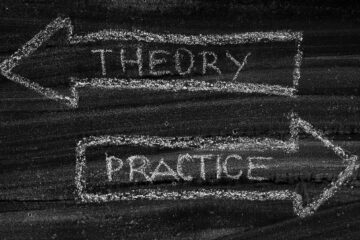Cross-posted from Education Week
So the top-performing countries move a little further ahead of us and the gap widens. In most OECD countries this news would be a call to arms. Their education leaders would be combing the PISA data on the top-performers to see what they could learn that might enable to them to improve their own performance. But not in the United States. Instead, in some kind of parallel universe, we are locked in education wars over policies none of which are likely to make any difference at all.
I agree with Diane Ravitch that all we achieve by attacking our teachers and promoting unworkable schemes to tie teacher’s pay and retention to student performance on standardized tests is to make sure that we drive the best teachers away and ensure that the young people we want to attract to teaching careers will choose something else instead. But she seems to me to resolutely ignore the fact that the education system she champions has produced no improvement in education outcomes since the 1970s, while increasing the per pupil cost after accounting for inflation by 240 percent during that period. That is simply unsustainable.
I agree with Eric Hanushek and Paul Peterson that the inability of the United States to improve education outcomes while the cost of our schools skyrockets, even as one nation after another outperforms us on all indicators, poses a vital threat to the United States, but there is no evidence that the solutions they offer–charters, vouchers, accountability schemes designed to weed out bad teachers–will work, or indeed have worked anywhere at the scale of a state or nation.
I agree with the Silicon Valley entrepreneurs and Wall Street investment bankers that we should be encouraging new ideas and bold innovations, but I think their premise that we will succeed only by promoting “disruptive change” and blowing up the system is simply destructive. We need a system of mass education and they seem to be constitutionally averse to governmental systems of any kind. There is no solution down that road, because they offer us no road to a new system of mass education.
I agree with all those who believe that the Common Core State Standards are the last best chance this country has of setting the expectations of teachers, parents and students high enough for our students to succeed in an increasingly competitive world. But I sympathize with the teachers who say they have not been prepared for the changes that would be required to teach curriculum aligned to the Common Core well and I fear that those who insist that salvation lies in teacher accountability will saddle us with cheap tests because their system demands year-by-year testing of students; cheap tests will sabotage the Common Core by making it impossible to test the kind of complex thinking skills that the Common Core calls for.
The education wars, of course, are part of the larger political wars now being fought on an epic scale in the United States. The working poor and the unemployed have effectively been abandoned by both parties and, not without reason, see their country and their rights being taken away by government that has been hijacked by interests beyond their control. And they are very angry. Many see the one government service they thought they had some control over–education–slipping out of their hands, too, and they are determined not to let that happen. I can sympathize with them while at the same time disagreeing vigorously with their premise that the education system was working just fine before the opponents of local control took over. The record shows the system hasn’t been working since the 1970s.
Interestingly, these critics on the far right sound to me very much like those on the left. Both seem to believe that all would be well if we rolled the clock back 20 years. But, if we roll the clock back 20 years, what we will find is all the dynamics that produced the mediocre performance and high costs we suffer from now.
We will not find the answers to our declining ranking on the world’s education league tables in a romanticized past, or in the market or in disruptive change or in punitive accountability systems or getting rid of our worst teachers. None of the PISA top performers got there with those solutions.
They all got there the old-fashioned way. They invested more in their harder-to-educate students than their easier-to-educate students. They worked hard to make sure that young children and their families had a lot of support before the kids arrived at the school door. They started recruiting their teachers from their most talented high school graduates rather than their least talented graduates. They insisted that all their teachers really master the subjects they would teach and spend at least a year mastering the craft of teaching. They provided an extended period of mentoring for new teachers under the supervision of master teachers. They provided strong support for the continuing development of their existing teaching force. They constructed real career ladders for teachers and paid them well. They wrote very demanding standards for the achievement of their students, incorporating the kinds of skills needed to succeed in the world’s most advanced economies, developed a strong curriculum to match those standards and invested in very high quality assessments based on that curriculum. They strengthened their vocational and technical education systems and developed their applied learning systems to provide expanded opportunities for students to enter the adult world with confidence, skill, experiences and connections that would enable them to become productive and fulfilled. Not least important, they provided their ministries of education with the authority and resources they needed to lead and implement this extraordinarily complicated dance.
They neither blew up their system nor did they retreat into the delusion that they could just turn the clock back to get the results they wanted. They did the hard work on the obvious tasks. That is the message of PISA. Will we hear it? Will we act on it?





